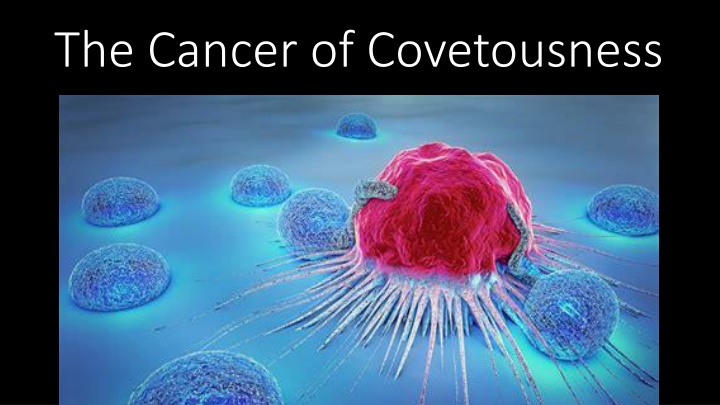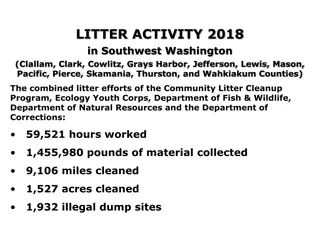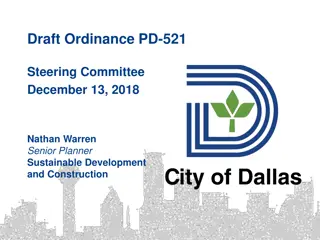
Covetousness: Definition, Manifestation & Safeguards
Explore the concept of covetousness, its manifestations in our lives, and the safeguards against it as outlined in the Old and New Testaments. Discover the difference between admiring and coveting, essential components of covetousness, and factors provoking desires.
Download Presentation

Please find below an Image/Link to download the presentation.
The content on the website is provided AS IS for your information and personal use only. It may not be sold, licensed, or shared on other websites without obtaining consent from the author. If you encounter any issues during the download, it is possible that the publisher has removed the file from their server.
You are allowed to download the files provided on this website for personal or commercial use, subject to the condition that they are used lawfully. All files are the property of their respective owners.
The content on the website is provided AS IS for your information and personal use only. It may not be sold, licensed, or shared on other websites without obtaining consent from the author.
E N D
Presentation Transcript
Deuteronomy 5:21 "You shall not covet your neighbor s wife. You shall not set your desire on your neighbor s house or land, his male or female servant, his ox or donkey, or anything that belongs to your neighbor.
1.What is covetousness? 2.How does it manifest in our lives? 3.What are the safeguards/ remedies/ protections/ antidotes against covetousness?
What is Covetousness? Old Testament: (khaw-med) Positively taking pleasure in something/someone; delighting in or finding something delicious or beautiful. Negatively covetousness, greed
What is Covetousness? New Testament: (pleonexia) always used negatively; translated greed or covetousness . It s often in a list of other sins. (epithumeo) used negatively of lust, greed, covetousness, wanting to have what others own. Used positively of longing, good desire.
Covetousness Greed or covetousness is a strong desire for anything that is not yours and currently unattainable because it belongs to someone else or lies outside your ability to acquire ethically.
3 Essential Components of Covetousness 1. Covetousness always has an object 2. It always has a value attached to it 3. It is an attitude or desire that, unchecked, will often move to action.
The difference between admiring something and coveting?
1. What is provoking the desire? 2. What are we looking to the acquisition to do for us?
1. What is provoking the desire? 2. What are we looking to the acquisition to do for us? 3. How we plan to acquire it?
Question #2: How does greed or covetousness MANIFEST in our lives? The 10th Commandment intersects with the 1st Commandment.
Question #2: How does greed or covetousness MANIFEST in our lives? The 10th Commandment intersects with the 1st Commandment. Covetousness manifests itself in every failure to love God as God.
How does covetousness MANIFEST itself in our lives today? A. Lack of Generosity: 2 Cor. 9:5 (NASV) So I thought it necessary to urge the brethren that they would go on ahead to you and arrange beforehand your previously promised bountiful gift, so that the same would be ready as a bountiful gift and not affected by covetousness
Deuteronomy 15:7-10 If there is a poor man with you, one of your brothers, in any of your towns in your land which the LORD your God is giving you, you shall not harden your heart, nor close your hand from your poor brother;8but you shall freely open your hand to him, and shall generously lend him sufficient for his need in whatever he lacks.9Beware that there is no base thought in your heart, saying, The seventh year, the year of remission, is near, and your eye is hostile toward your poor brother, and you give him nothing; then he may cry to the LORD against you, and it will be a sin in you.
Deuteronomy 15:7-10 10You shall generously give to him, and your heart shall not be grieved when you give to him, because for this thing the LORD your God will bless you in all your work and in all your undertakings.
How does covetousness MANIFEST itself in our lives today? B. Failing to Give to God what is His. Micah 3:8-10 Will a mere mortal rob God? Yet you rob me. But you ask, How are we robbing you? In tithes and offerings.9You are under a curse your whole nation because you are robbing me.10Bring the whole tithe into the storehouse, that there may be food in my house.
How does covetousness MANIFEST itself in our lives today? C. Giving to God because we want more.
How does covetousness MANIFEST itself in our lives today? D. Wanting by elicit means what belongs to others. Gambling
How does covetousness MANIFEST itself in our lives today? D. Wanting by elicit means what belongs to others. Gambling Debt
How does covetousness MANIFEST itself in our lives today? D. Wanting by elicit means what belongs to others. Gambling Debt Penalizing public policy
Solutions to Covetousness Replace it with something of greater value.
Solutions to Covetousness 1. Make God our ultimate treasure.
Matthew 13:44-45 The kingdom of heaven is like treasure hidden in a field. When a man found it, he hid it again, and then in his joy went and sold all he had and bought that field. 45 Again, the kingdom of heaven is like a merchant looking for fine pearls.46When he found one of great value, he went away and sold everything he had and bought it.
Solutions to Covetousness 1. Make God our ultimate treasure. Experience God in a way that captures our souls. [See YouTube Church Awakening Conference 2023 | DAVID THOMAS
Solutions to Covetousness 1. Make God our ultimate treasure. Experience God in a way that captures our souls. Engage deeply in life with God and His family.
Solutions to Covetousness 1. Make God our ultimate treasure. 2. Refocus and refine our affections. Valuing, desiring and working for what is eternal and permanent more than what is temporal and transient. Colossians 3:1-4
Solutions to Covetousness 1. Make God our ultimate treasure. 2. Refocus and refine our affections. 3. Practice generosity. Acts 20:35 In everything I did, I showed you that by this kind of hard work we must help the weak, remembering the words the Lord Jesus himself said: It is more blessed to give than to receive.
How content am I with what I have? Where am I discontent? How generous am I with what God has blessed me? Am I giving far more to others than I m taking? How am I using the things I have to love God and love people? What am I doing to make God my ultimate treasure in life? To refocus and refine my affections towards eternity?




